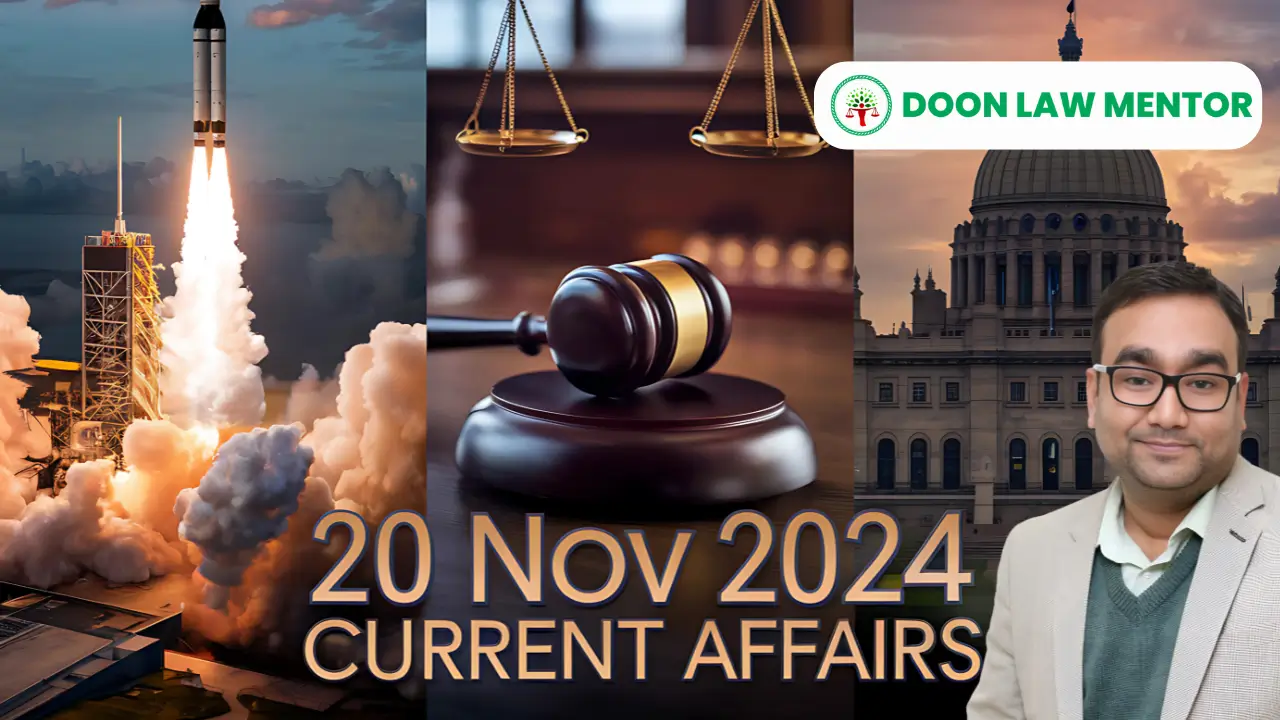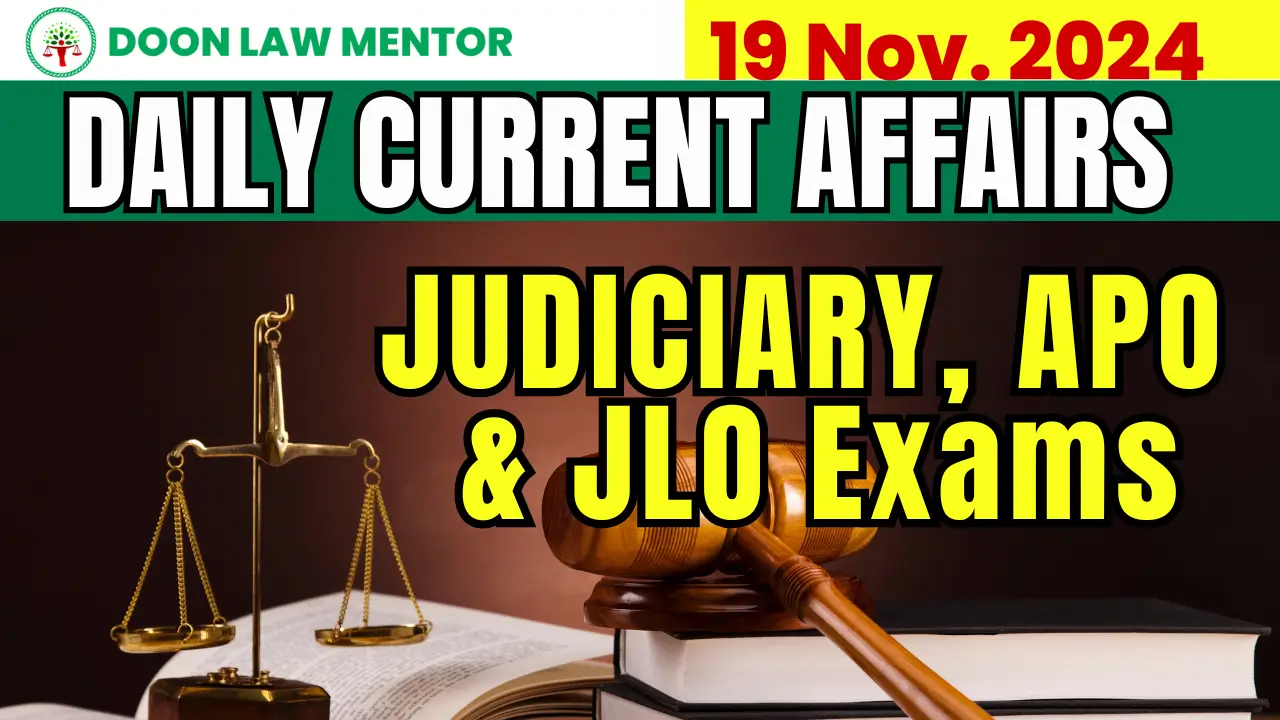Introduction
The Waqf (Amendment) Bill 2024 proposes sweeping reforms to the governance and management of waqf properties in India. Aimed at ensuring transparency, accountability, and professionalism in the administration of waqf assets, the Bill has sparked debate regarding the extent of state involvement in religious endowments. Historically, waqf properties, which are endowed for religious or charitable purposes under Islamic law, have faced issues such as mismanagement, corruption, and encroachments.
While proponents argue that the Bill modernizes the waqf system and addresses its long-standing inefficiencies, critics suggest that it may undermine religious autonomy by granting the government excessive control over waqf affairs. This blog takes a deep dive into the key provisions, potential impact, and controversies surrounding the Waqf (Amendment) Bill 2024.
Table of Contents
1. Establishment of a Centralized Registry for Waqf Properties
The Bill mandates the creation of a centralized registry where all waqf properties must be registered. This registry will include details on ownership, income, legal disputes, and management of each waqf property.
Impact:
This reform introduces much-needed transparency in the waqf system. By centralizing information about waqf properties, it seeks to curb corruption, underreporting of income, and disputes regarding ownership. Public access to this information ensures that waqf properties are managed efficiently, with their revenues directed toward their intended charitable purposes.
Why It’s Needed:
Waqf properties generate significant funds for charitable and religious causes, but their mismanagement has historically led to underutilization and embezzlement. A centralized registry will help address these issues by making property details publicly accessible, promoting accountability.
Relevant Link: Learn about how centralized property registries can improve transparency in land management from the World Bank.
2. Clarification on Government Property as Waqf
The Bill explicitly states that government property cannot be declared as waqf. In cases where there is uncertainty regarding the ownership of a property, the District Collector will investigate and determine if the property belongs to the government or falls under waqf.
Impact:
This provision seeks to reduce disputes between waqf institutions and government authorities over land ownership. By clearly demarcating government land from waqf property, the Bill reduces potential for prolonged legal disputes and protects government assets from being wrongfully claimed as waqf.
Why It’s Needed:
In the past, several cases have emerged where government land was declared waqf based on false claims or historical usage patterns. This reform ensures clear boundaries between public and waqf properties, preventing misuse of government land.
Relevant Link: Read more about disputes involving government land ownership at PRS India.
3. Regulation of Waqf-alal-Aulad (Family Waqf)
Waqf-alal-aulad, or family waqf, has often been used to circumvent inheritance laws, particularly at the expense of female heirs. The Bill clarifies that family waqfs cannot deny legal heirs, especially women, their rightful inheritance.
Impact:
This reform promotes gender justice by aligning the waqf system with modern inheritance rights. It ensures that women, who have historically been excluded from inheritance under some family waqf arrangements, are given their legal share.
Why It’s Needed:
Family waqfs have frequently been used as loopholes to bypass Islamic inheritance laws, particularly denying women their rightful portion. This provision enforces fairness and prevents the misuse of the waqf system to evade inheritance laws.
Relevant Law: The provision aligns with Islamic inheritance laws, including the Muslim Personal Law (Shariat) Application Act, 1937.
Relevant Link: Explore more about Islamic inheritance laws at Muslim Personal Law Board.
4. Removal of Waqf by User
The Bill abolishes the concept of waqf by user, which allowed properties to be declared as waqf simply based on long-term religious or charitable use, even without formal declaration by the owner.
Impact:
This provision protects property owners from losing their rights due to historical religious use. It ensures that only properties formally declared as waqf are recognized, thereby reducing the potential for false claims and disputes over property ownership.
Why It’s Needed:
The concept of waqf by user has been abused in the past to claim private properties as waqf, leading to legal battles. By removing this provision, the Bill ensures that waqf properties are clearly documented and legally recognized, protecting private property rights.
Relevant Case: The landmark case of Syed Ata Mohd Brelvi vs Syed Kafaitulla illustrated the complexities of waqf by user and ownership disputes.
Relevant Link: Read more about property rights and waqf disputes at PRS Legislative Research.
5. Professionalization of Waqf Surveys and Management
The Waqf (Amendment) Bill 2024 shifts the responsibility for waqf surveys to District Collectors and introduces auditing of waqf accounts by the Comptroller and Auditor General (CAG) or a designated officer.
Impact:
This reform brings a higher level of professionalism to the management of waqf properties. The involvement of senior government officials ensures that waqf property surveys are conducted transparently, and the auditing of waqf accounts ensures financial accountability.
Why It’s Needed:
Waqf property surveys have historically been inconsistent, leading to disputes over boundaries and ownership. The involvement of District Collectors and the CAG ensures accuracy in waqf property records and reduces the risk of financial mismanagement.
Relevant Link: Discover how government auditing increases financial accountability in public institutions at CAG India.
6. Changes in Waqf Tribunal Composition and Appeal Mechanisms
The Bill alters the composition of Waqf Tribunals, replacing members with expertise in Muslim law with legal professionals such as District Court judges and senior government officials. It also allows appeals to be made to High Courts.
Impact:
This reform professionalizes the handling of waqf disputes, ensuring they are adjudicated by trained legal professionals rather than religious scholars. It also offers a higher level of judicial review by allowing appeals to High Courts, which were previously unavailable.
Why It’s Needed:
The earlier system, where Waqf Tribunals functioned without legal experts, often led to biased decisions. The new structure ensures that waqf-related disputes are resolved fairly and in accordance with law.
Relevant Case: The case of State of Andhra Pradesh vs Qudrat Ullah raised concerns over tribunal decisions and emphasized the need for legal professionals in waqf tribunals.
Relevant Link: For more information on Waqf Tribunal reforms, visit Waqf Council of India.
7. Inclusion of Non-Muslim Members on Waqf Boards
The Bill introduces provisions allowing non-Muslim members to be included in Waqf Boards and the Central Waqf Council, along with representatives from diverse Muslim sects like Shia, Sunni, and Bohra communities.
Impact:
This change ensures diversity and inclusivity in waqf management, fostering greater accountability. By including non-Muslim members, the Bill introduces broader oversight, ensuring that waqf boards are not limited to insular decision-making.
Why It’s Needed:
Including non-Muslim members introduces an additional layer of transparency and broader societal oversight, which helps prevent corruption and promotes pluralism in the management of waqf properties.
Relevant Link: Learn more about the benefits of diverse representation in governance from Transparency International.
Critiques and Broader Implications of the Waqf (Amendment) Bill 2024
While the Waqf (Amendment) Bill 2024 brings necessary reforms to improve the management of waqf properties, it has also drawn criticism for perceived overreach and potential infringements on religious autonomy. This section explores the key concerns surrounding the Bill and its impact on religious, social, and legal spheres in India.
1. Undermining Religious Autonomy
Critics argue that the Bill could undermine the autonomy of religious institutions by giving the government greater control over the management of waqf properties. The appointment of District Collectors to manage surveys and settle disputes could be perceived as an overextension of government authority into religious affairs.
1. Undermining Religious Autonomy
Critics of the Waqf (Amendment) Bill 2024 argue that it could undermine the autonomy of religious institutions, which have historically enjoyed independence in managing waqf properties. By involving District Collectors and other government officials in the governance and management of these properties, the Bill may infringe upon the religious rights guaranteed under Article 26 of the Indian Constitution, which grants religious denominations the right to manage their own affairs in matters of religion.
Impact:
This increased state intervention in what has traditionally been the domain of religious communities could be seen as weakening the independence of these institutions, leading to tensions between religious groups and the government. The move to centralize waqf governance could also be interpreted as a violation of religious autonomy, with critics warning of an imbalance between necessary reform and overreach.
Why It’s Concerning:
The Constitution guarantees freedom to manage religious institutions under Article 26. By introducing stronger government control, the Bill risks undermining this constitutional right, particularly in a secular state like India where religious freedom is a foundational principle.
Relevant Link: Read more about the rights of religious institutions under Article 26 at Constitution of India.
2. Impact on Secularism
The Bill’s provision to include non-Muslim members on Waqf Boards has sparked concerns about its impact on the religious character of these institutions. Waqf properties are meant to serve religious and charitable purposes based on Islamic principles. Critics argue that by allowing non-Muslims to participate in the governance of waqf properties, the religious identity of these institutions could be diluted.
Impact:
In a secular state like India, the government is expected to maintain neutrality in matters of religion. However, the inclusion of non-Muslim members on Waqf Boards may be seen as an unnecessary intrusion into religious governance. While this move aims to increase accountability and inclusivity, it could potentially violate the spirit of religious endowments.
Why It’s Concerning:
Religious endowments like waqf properties are closely tied to faith, and their governance by non-Muslim members could be seen as contradictory to the Islamic principles underlying these endowments. This could lead to resistance from religious communities that see this as a compromise on their rights to manage religious properties according to their beliefs.
Relevant Link: Discover more about secularism and religious autonomy in India at Indian Constitutional Law.
3. Elimination of Waqf by User
The abolition of waqf by user—where properties could be declared as waqf due to long-term religious or charitable use, even without formal declaration—has been another contentious issue. While the Bill aims to protect private property owners from losing rights due to historical usage patterns, many believe that it disregards important aspects of Islamic law and tradition.
Impact:
This change could affect properties that have been used for religious or charitable purposes for generations but were never formally registered as waqf. Many Muslim communities have emotional and historical ties to such properties, and the removal of waqf by user could sever these connections, resulting in legal disputes and social tensions.
Why It’s Concerning:
By eliminating waqf by user, the Bill may overlook the cultural and religious significance of these long-standing practices. Many Muslim communities have deep ties to properties that were never formally registered as waqf but have served religious or charitable purposes for generations. This reform could be seen as eroding these historical connections and dismissing the role of tradition in waqf management.
Relevant Case: In the case of Mohammad Yousuf vs Saleha Begum, the courts dealt with disputes over properties that had been used for religious purposes without formal waqf declarations, highlighting the complexities of waqf by user.
Relevant Link: Learn more about historical and legal aspects of waqf properties at Waqf India.
4. Increased Bureaucratic Control
While the Bill aims to increase transparency by involving District Collectors and other senior government officials in waqf management, there is concern that this may lead to increased bureaucratic red tape and delays. Critics argue that government officials, who may not fully understand the religious and cultural nuances of waqf properties, could inadvertently complicate management processes.
Impact:
The involvement of government bodies in waqf property management could slow down decision-making, leading to delays in dispute resolution and property surveys. There are also fears that bureaucratic control could open the door to corruption and favoritism, undermining the very transparency that the Bill seeks to promote.
Why It’s Concerning:
Government officials, who are often overburdened with responsibilities, may not prioritize waqf management, leading to inefficiency. Additionally, the risk of bureaucratic hurdles could further complicate the management of waqf properties, potentially leading to more legal battles and disputes over property rights.
Relevant Link: Explore the risks and challenges of bureaucratic control in public administration at World Bank Governance.
5. Potential for Misuse of Power
By granting District Collectors significant discretionary power to determine whether properties are waqf or government land, the Bill raises concerns about the potential for the misuse of power. Property disputes involving valuable urban land could become contentious, with allegations of bias or corruption arising from decisions made by government officials.
Impact:
The discretionary powers granted to District Collectors could lead to wrongful classification of properties, particularly in cases involving valuable real estate. There is a risk that this provision could be misused to favor certain parties, resulting in misappropriation of waqf assets.
Why It’s Concerning:
Granting unchecked power to District Collectors opens the door for arbitrary decision-making. Given the value of some waqf properties, particularly in urban areas, disputes could become contentious, with parties questioning the objectivity of the decision-making process. This could lead to litigation and legal challenges over ownership claims.
Relevant Link: Learn more about the challenges of discretionary power in governance at PRS Legislative Research.
6. Erosion of Trust in Waqf Boards
The reduction in the autonomy of Waqf Boards and the transfer of significant powers to government officials could lead to a loss of trust in the waqf system among the Muslim community. The Bill’s emphasis on government oversight may be interpreted as an attempt to diminish the independence of Waqf Boards, which have traditionally been responsible for managing waqf properties.
Impact:
The perceived erosion of waqf autonomy could alienate the Muslim community, leading to distrust toward government intervention in religious matters. The reduced role of Waqf Boards and the increasing influence of government officials may foster resentment, particularly among communities that value the traditional structure of waqf management.
Why It’s Concerning:
Trust in Waqf Boards is crucial for the successful management of waqf properties. By reducing the powers of these boards and increasing government control, the Bill risks alienating the very communities it seeks to benefit. This could undermine the effectiveness of the waqf system and lead to a lack of cooperation between the government and religious institutions.
Relevant Link: For more information on the role of Waqf Boards in India, visit the Central Waqf Council.
7. Legal Ambiguities and Increased Litigation
The Bill introduces provisions for appealing Waqf Tribunal decisions in High Courts, which, while intended to provide greater judicial review, may lead to an increase in litigation. With India’s judiciary already burdened by a backlog of cases, adding waqf disputes to the docket could result in delays in the resolution of cases, causing hardships for those involved.
Impact:
The ability to appeal Waqf Tribunal decisions in High Courts, though a positive step for access to justice, could lead to an influx of cases, overwhelming an already strained judicial system. This could result in significant delays in dispute resolution, especially for smaller waqf properties that rely on timely decisions to function effectively.
Why It’s Concerning:
India’s judicial system is known for its backlog of cases, and the introduction of more legal disputes related to waqf properties could exacerbate these delays. Prolonged litigation could also result in financial strain for smaller waqfs, which may not have the resources to endure lengthy legal battles.
Relevant Link: Learn about the challenges of judicial backlog in India at Live Law.
Conclusion
The Waqf (Amendment) Bill 2024 introduces several progressive reforms aimed at modernizing and streamlining the management of waqf properties. From the establishment of a centralized registry to the inclusion of non-Muslim members on Waqf Boards, the Bill seeks to address long-standing issues of transparency, accountability, and professionalism. However, it has also sparked significant concerns about the extent of government intervention in religious affairs, the potential for bureaucratic delays, and the erosion of religious autonomy.
Supporters of the Bill argue that these changes are necessary to safeguard waqf properties from mismanagement and corruption, while critics view the reforms as an overreach that could undermine the independence of religious institutions. As India grapples with these complex issues, it is essential to strike a balance between reform and religious autonomy, ensuring that the waqf system remains both transparent and faithful to its religious principles.
#WaqfAmendment2024 #WaqfReform #ReligiousAutonomy #IslamicLaw #WaqfManagement #IndianLaw #GovernmentOversight #LegalReform #DoonLawMentor






1 Comment
Your point of view caught my eye and was very interesting. Thanks. I have a question for you.